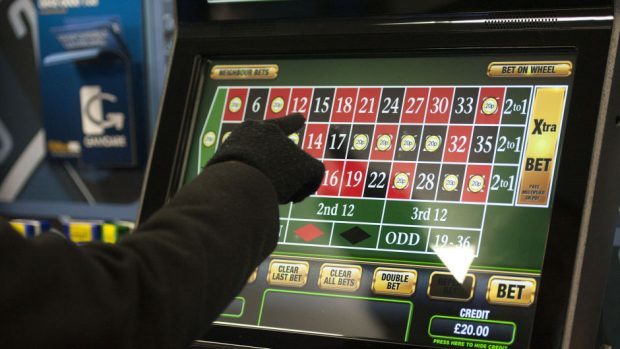I offer a world exclusive which might explain why our MPs were tying themselves in Houdini-proof knots during that exhausting and exasperating Brexit indicative-voting marathon.
My conclusion is that they are suffering a mass attack from a highly-contagious medical condition.
It is known as semantic satiation (also semantic saturation).
You might be familiar with research work by scientist Leon Jakobovits James, who coined the expression half a century ago.
No? Nor me – until the other day, that is, when I started to wonder what was wrong with MPs and if they were afflicted by something.
The only credible explanation until then was offered by father-of-the-house Ken Clarke, with his scathing assessment in the Commons that the current bunch of MPs were just not good at politics (a serious basic weakness in this line of work, by the way).
My inquiries led to Professor James, who proved that semantic satiation is a psychological phenomenon in which repetition causes a word or phrase to temporarily lose meaning for the listener, who then perceives the speech as repeated meaningless sounds.
Bingo. “Back stop”, “extension” etc…This explains why it has been such a mess since the inmates took over the “asylum”. I am sticking to my theory anyway.
The only indicative consensus was from bewildered observers on the outside who were left wondering what happened to common sense and compromise.
It was ironic that on the day they resumed trying in vain to indicate something mutually agreeable, Government legislation came into being to restrict addictive betting-shop machines which swallow large amounts of cash in seconds.
A serious issue well worth MPs’ attention, even although they were busy elsewhere gambling with our future.
Many fear a string of social problems gripping the UK have been by-passing ministers and backbench MPs as they sit transfixed and paralysed by Brexit in their own depressing game of roulette.
Gambling is up there with drugs and alcohol as a destroyer of families. Financially, it is probably a faster downward spiral as desperate gamblers destroy home life, family finances and jobs.
It is a real and painful nightmare for tens of thousands of families the length and breadth of the UK.
Recently we read in the P&J of a man who took the whole pot at an Aberdeen casino, but this was not a piece of dazzIing blackjack skill. In fact, he literally stole the casino’s pot of chips off a table because he was a gambling addict.
I was looking at a gambling-support site the other day and was moved by a heart-rending cry for help from a woman who posted about her husband’s ruinous gambling.
“Last night while he was at Gamblers’ Anonymous I just cried and cried,” she said.
As one respected political observer commented “it has been gamble after gamble after gamble”, with Mrs May making the biggest gamble of all by throwing her arms around Jeremy Corbyn.
After the Brexit vote in 2016, I thought naively that some kind of united political approach in the national interest would have to emerge swiftly in Westminster to lift us above “normal politics” and guide the country through this momentous period, especially due to the closeness of the vote and need to heal divisions.
Such a historic move required statesmanship of a high order on all sides to agree a consensual non-party political approach on a single issue, and stick to it.
Instead, we descended into traditional tribal political warfare from every party sitting in the Commons as though they were fighting a non-stop general election, and a re-run of the referendum arguments on a daily basis.
With hardcore Brexiters and Remainers so polarised, it was obvious that middle ground and compromise was the only sensible way forward.
Tory Brexiters have been screeching over Mrs May fleeing from their house and running across the road to Mr Corbyn’s “neighbours from hell”, but maybe it is more a condemnation of them.
To be honest, I think the referendum campaign never ended and is still being fought to the bitter end this week by Brexiters and Remainers, but under a flimsy guise of “seeking consensus” on a deal.
And so the festering “disconnect” worsens between political elite and public.
Former shadow home secretary and Strictly Come Dancing star Ann Widdecombe said we were lumbered with an awfully inept bunch to deal with matters so grave – “one of the worst Tory prime minsters, the worst Labour leader of all time and the worst parliament since Cromwell”.
Just for the record, Cromwell’s 17th century parliaments were so bad they spent months unable to decide anything and were even dissolved at one point, but even they might turn in their graves at the comparison.
“No Sex Please, We’re British” used to be the longest-running farce on the London stage lasting 16 years, but I am beginning to wonder if “No Consensus Please, We’re British” might beat that.
It seems inevitable that our political stability will never be the same again due to these extraordinary events, as politicians of all parties in the UK gamble away the only chips which really matter – the public’s trust.
David Knight is the long-serving former deputy editor of the Press and Journal

